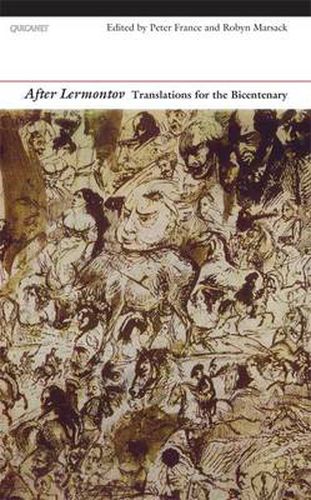Readings Newsletter
Become a Readings Member to make your shopping experience even easier.
Sign in or sign up for free!
You’re not far away from qualifying for FREE standard shipping within Australia
You’ve qualified for FREE standard shipping within Australia
The cart is loading…






Mikhail Lermontov (1814 - 41) is best known in the West today as the author of the novel A Hero of Our Time. But at the time of his death, aged only 26, he was widely regarded as Russia’s greatest living poet. He achieved almost instant fame in 1837 with ‘On the Death of a Poet’, his tribute to Pushkin - whose death in a duel foreshadowed Lermontov’s own. Over the course of the next four years he went on to write many short poems, both lyric and satirical, and two long verse narratives. He was particularly known for his depictions of the Caucasus, where he was exiled for a time, taking part in battles such as the one described in his poem ‘Valerik’. Lermontov traced his ancestry to Scotland, and this book offers a Scottish perspective on the Russian poet. Most of the translators are Scottish or have Scottish connections, and some of the poems are translated into Scots. As Peter France writes in his introduction, this bicentennial volume aims to bring Lermontov’s poems to a new readership by enabling them to ‘live again’ in English and in Scots.
$9.00 standard shipping within Australia
FREE standard shipping within Australia for orders over $100.00
Express & International shipping calculated at checkout
Mikhail Lermontov (1814 - 41) is best known in the West today as the author of the novel A Hero of Our Time. But at the time of his death, aged only 26, he was widely regarded as Russia’s greatest living poet. He achieved almost instant fame in 1837 with ‘On the Death of a Poet’, his tribute to Pushkin - whose death in a duel foreshadowed Lermontov’s own. Over the course of the next four years he went on to write many short poems, both lyric and satirical, and two long verse narratives. He was particularly known for his depictions of the Caucasus, where he was exiled for a time, taking part in battles such as the one described in his poem ‘Valerik’. Lermontov traced his ancestry to Scotland, and this book offers a Scottish perspective on the Russian poet. Most of the translators are Scottish or have Scottish connections, and some of the poems are translated into Scots. As Peter France writes in his introduction, this bicentennial volume aims to bring Lermontov’s poems to a new readership by enabling them to ‘live again’ in English and in Scots.